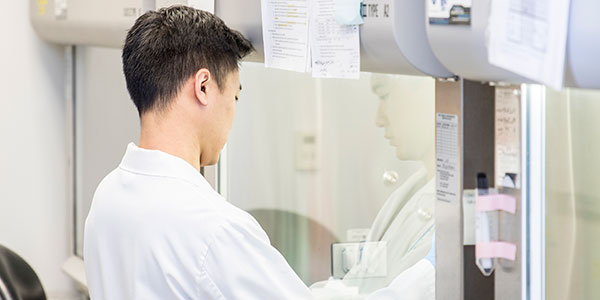Program costs and financial resources
The UW is proud to be a nationally ranked university with a budget-minded price tag.
For information on tuition, mandatory fees and other costs, please see UW’s Total Cost of Attendance resources at the Office of Admissions website.
Graduate tuition rates and fees are set and published by the UW Office of Planning & Budgeting. UW Bioengineering’s graduate program tuition is Tier I. More information about current and prior year tuition and fee schedules is available on the Office of Planning and Budgeting’s website.
Tuition and fees change annually – please contact the Senior Academic Counselor for more information.
Students who are appointed on a Research Assistantship or Teaching Assistantship will qualify for a Resident Tuition Waiver. All other out-of-state students who do not have a RA or TA appointment are required to pay non-resident tuition.
Applicants requesting an F-1 or J-1 visa must meet the UW’s financial ability requirement to show that they have adequate funding to cover living costs and tuition and campus fees for the first year of study.
With rare exception, international and domestic PhD students receive full financial support for the first 2-3 quarters by the department and thereafter by the student’s principal investigator. Support includes tuition, a monthly stipend and health insurance benefits (medical/dental/vision), assuming satisfactory progress toward the degree.
Master of Science, Combined Bachelor/Master of Science, and Master of Applied Bioengineering students do not receive financial support and are responsible for paying their tuition.
All students are responsible for paying nominal quarterly fees (includes cost of full-fare transit pass, technology fee, building fees and others).
Determining how to finance your education may be a critical factor in a student’s decision to apply to graduate school. Although some students have strong financial support from their family or government, most need to plan carefully. There are many forms of financial support that students may be eligible for as a graduate student. Students are advised to search early and seek all possible funding options. Some helpful resources:
Office of Student Financial Aid (OSFA) – Information about need-based financial aid such as student loans and work study.
Fellowships – Generally offered by graduate programs, fellowships may be discipline-specific as well as broad.
Assistantships – Bioengineering teaching assistant positions are typically advertised in May and assigned during the summer. Please see the Bioengineering TA and grader page for additional information and application forms.
Other Funding Resources – More ideas to help students finance their graduate education.
The Master of Pharmaceutical Bioengineering is 39 total credits and students generally take 4-7 credits per quarter. To read more about the curriculum, please visit our program website.
Below is the 2023-2024 cost breakdown for the Master of Pharmaceutical Bioengineering program. Please note that program fees are charged on a quarterly basis.:
• Tuition: $908 Per Credit Hour
• Non-Refundable Quarterly Registration Fee: $55
• Quarterly student fees for 4-7 credits ($298 – $434)


